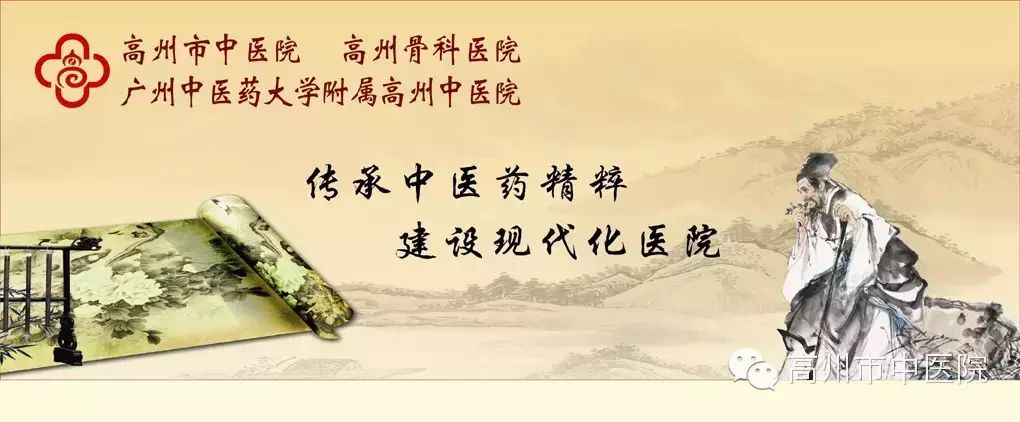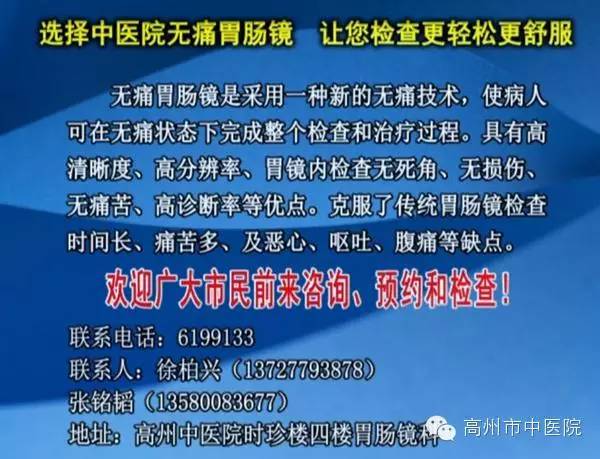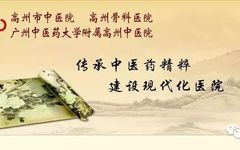


Methods for TCM Regulation of Yin Deficiency Constitution
The Yin deficiency constitution is best regulated with herbs that nourish Yin and moisten dryness. Herbs that can replenish Yin include: Hai Shen (Sea Cucumber), Bai He (Lily Bulb), Mai Dong (Ophiopogon), Tian Dong (Asparagus), Shi Hu (Dendrobium), Yu Zhu (Polygonatum), Huang Jing (Polygonatum), Ming Dang Shen (Codonopsis), Gou Qi Zi (Goji Berries), Mo Han Lian (Eclipta), Nu Zhen Zi (Ligustrum), Wu Wei Zi (Schisandra), Gui Ban (Tortoise Shell), Bie Jia (Soft-Shelled Turtle), Yan Wo (Bird’s Nest), and Ji Zi Huang (Egg Yolk). In daily life, these herbs can be used to make medicinal teas or drinks to alleviate symptoms of excessive Yin deficiency.
For elderly individuals with Yin deficiency, dry skin, heat in the palms and soles, facial flushing, and dry stools, one can use 1 raw egg, beaten and mixed, then poured with boiling water, cooled, and sweetened with honey for consumption.
If experiencing irritability, dry eyes, and blurred vision, one can use 6 grams of Ju Hua (Chrysanthemum), and 3 grams each of Gou Qi Zi (Goji Berries) and Jue Ming Zi (Cassia Seeds), steeped in boiling water as a tea. If there is dryness of the mouth and throat, coughing with blood-streaked phlegm, and dry skin, one can use 6 grams each of Bai He (Lily Bulb) and Mai Dong (Ophiopogon), and 3 grams each of Gou Qi Zi (Goji Berries) and Huang Jing (Polygonatum), steeped in boiling water as a tea. For palpitations, shortness of breath, and thirst, one can use 9 grams of Dang Shen (Codonopsis), 3 grams of Wu Wei Zi (Schisandra), and 6 grams of Mai Dong (Ophiopogon), steeped in boiling water as a tea.
The most famous formula for nourishing Yin is Liu Wei Di Huang Wan (Six-Ingredient Rehmannia Pill), composed of Shan Yao (Chinese Yam), Shu Di Huang (Rehmannia), Shan Zhu Yu (Cornus), Dan Pi (Moutan), Ze Xie (Alisma), and Fu Ling (Poria), which together nourish the liver, enrich Yin, and reduce fire, suitable for those with Yin deficiency and excess fire.
Based on different symptoms, various modified formulas can be derived from Liu Wei Di Huang Wan, such as Mai Wei Di Huang Wan for treating lung Yin deficiency; Gou Ju Di Huang Wan for treating liver Yin deficiency and dry eyes; and Zhi Bai Di Huang Wan for treating five hearts heat, deficiency heat, and night sweats.
For the elderly and weak with true Yin deficiency, Zuo Fu Wan can be used; for those with excess Yin deficiency fire, Da Bu Yin Wan can be used. Yin-replenishing herbs are often rich and cloying, so if symptoms of reduced appetite and loose stools occur during treatment, one should follow medical advice.
Select 15 grams each of Dong Chong Xia Cao (Cordyceps), Shi Hu (Dendrobium), Bai Shao (White Peony), and Shan Yao (Chinese Yam), and 25 grams each of Sang Shen Zi (Mulberry Fruit), Nu Zhen Zi (Ligustrum), Mo Han Lian (Eclipta), and Shu Di Huang (Rehmannia). Decoction for consumption, which has the effects of nourishing liver and kidney Yin, clearing deficiency heat, and calming the spirit, most suitable for individuals with Yin deficiency to nourish liver and kidney.
One can also choose suitable medicinal dishes for Yin deficiency constitution, such as Si Wei Yang Yin Zhou (Four-Ingredient Yin Nourishing Porridge): appropriate amounts of Shan Yao (Chinese Yam), Jing Mi (Glutinous Rice), Gou Qi Zi (Goji Berries), and Bai He (Lily Bulb), cooked with water until soft, and seasoned. This can both replenish Qi and nourish Yin.
Additionally, those with severe Yin deficiency or menopausal syndrome can use Xi Yang Shen (American Ginseng) and royal jelly soaked in honey for treatment. It is advised to moderate sexual activity, as essence belongs to Yin; those with Yin deficiency should protect Yin, and excessive sexual activity can harm essence and thus harm Yin, so moderation is necessary.
For children with Yin deficiency fever, the method of nourishing Yin and clearing heat is primarily used, which means replenishing the body’s Yin deficiency to adjust the dynamic balance of Yin and Yang. Commonly used Yin-nourishing herbs include Sha Shen (Adenophora), Mai Dong (Ophiopogon), Sheng Di (Rehmannia), Di Gu Pi (Lycium), Tian Hua Fen (Trichosanthes), Yu Zhu (Polygonatum), Qing Hao (Artemisia), and Bai Wei (Cynanchum). For weak children, Xi Yang Shen can be decocted for consumption, as it can nourish Yin, replenish Qi and blood, and enhance constitution.
Below are the corresponding diagnostic and treatment formulas for Yin deficiency constitution:
Heart Yin Deficiency
【Symptoms】Insomnia, vivid dreams, palpitations, forgetfulness, irritability, night sweats, heat in palms and soles, dry mouth and throat, red tongue tip, little coating, thin and rapid pulse, etc. May also present with red cheeks, irritability, dizziness, etc. due to deficiency fire.
【Etiology】Overthinking, prolonged illness damaging the heart, heat illness damaging the heart, etc.
【Regulating Formula】Tian Wang Bu Xin Dan (Heavenly Emperor Heart-Supplementing Pill) with modifications.
Tian Wang Bu Xin Dan
【Source】”Sheng Sheng Mi Pou”.
【Composition】Sheng Di (Rehmannia) 30 grams, Wu Wei Zi (Schisandra) 20 grams, Tian Dong (Asparagus) 12 grams, Mai Dong (Ophiopogon) 12 grams, Xuan Shen (Scrophularia) 15 grams, Huang Jing (Polygonatum) 15 grams, Nu Zhen Zi (Ligustrum) 15 grams, Sheng Huang Qi (Astragalus) 25 grams, Tai Zi Shen (Pseudostellaria) 15 grams, Chao Jujube (Fried Jujube) 30 grams, Bai Ren (Arborvitae Seed) 30 grams, Chi Shao (Red Peony) 12 grams, Sheng and Duan Mu Li (Oyster Shell) 30 grams (first decocted), Mao Zhua Cao (Cat’s Claw) 30 grams, Chen Pi (Dried Tangerine Peel) 6 grams, Chao Gu (Fried Barley) and Mai Ya (Barley Sprout) 15 grams each.
【Usage】Decoct in water, 1 dose daily, divided into 2 doses.
【Modifications】For palpitations and excessive sweating, add 30 grams of Fu Xiao Mai (Floating Wheat) (first decocted); for insomnia, add 10 grams of Yuan Zhi (Polygala) and 15 grams of Fu Shen (Poria); for low fever, add 9 grams each of Qing Hao (Artemisia) and Yin Chai Hu (Bupleurum), and 12 grams of Yan Bie Jia (Soft-Shelled Turtle) (first decocted); for cold limbs, add 15 grams each of Tu Si Zi (Cuscuta) and Xian Ling Pi (Gynostemma).
【Effect】Nourishes the kidney and heart, supports the righteous Qi and resists tumors. It is indicated for late-stage thyroid cancer with deficiency of righteous Qi, heart and kidney deficiency, and internal accumulation of evil toxins, presenting with palpitations, dizziness, insomnia, tinnitus, fatigue, and weakness.
Kidney Yin Deficiency
【Symptoms】Dizziness, tinnitus, lower back and knee pain, insomnia with vivid dreams, tidal fever and night sweats, five hearts heat, dry throat and red cheeks, red tongue with little moisture, thin and rapid pulse, men may also have nocturnal emissions, women may have scanty or absent menstruation.
【Etiology】Excessive mental stress.
【Regulating Formula】Zhi Bai Di Huang Wan (Anemarrhena and Phellodendron Rehmannia Pill).
Zhi Bai Di Huang Wan
【Source】Zhang Jingyue’s “Complete Book of Jingyue”.
【Composition】Zhi Mu (Anemarrhena) and Huang Bai (Phellodendron) each 40 grams, Shu Di Huang (Rehmannia) 160 grams, Shan Zhu Yu (Cornus) 80 grams, Mu Dan Pi (Moutan) 60 grams, Shan Yao (Chinese Yam) 80 grams, Fu Ling and Ze Xie each 60 grams.
【Usage】The above 8 herbs are ground into fine powder, sieved, and mixed. For every 100 grams of powder, use 35 to 50 grams of honey and an appropriate amount of water to form pills, dry to make water honey pills; or add 80 to 110 grams of honey to make small or large honey pills.
【Effect】Indicated for liver and kidney Yin deficiency with excess fire. Suitable for dizziness, tinnitus, toothache due to deficiency fire, five hearts heat, lower back and knee pain, blood in urine, nocturnal emissions, bone steaming tidal fever, night sweats, red cheeks, dry throat, red tongue, and thin rapid pulse.
Lung Yin Deficiency
【Symptoms】Cough without phlegm or with little sticky phlegm, dry mouth and throat, emaciation, afternoon tidal fever, five hearts heat, night sweats, red cheeks, and in severe cases, blood-streaked phlegm, hoarseness, red tongue with little moisture, thin and rapid pulse.
【Etiology】Prolonged cough damaging Yin.
【Regulating Formula】Yang Yin Qing Fei Tang (Nourishing Yin and Clearing Lung Decoction) and Qing Zao Jiu Fei Tang (Clearing Dryness and Rescuing Lung Decoction) with modifications.
Yang Yin Qing Fei Tang
【Source】”Zhong Lou Yu Yao”.
【Composition】Da Sheng Di (Rehmannia) 6 grams, Mai Dong (Ophiopogon), Sheng Gan Cao (Raw Licorice), and Xuan Shen (Scrophularia) each 5 grams, Bei Mu (Fritillaria), Dan Pi (Moutan), Bo He (Mint), and Chao Bai Shao (Fried White Peony) each 3 grams.
【Modifications】If there is deficiency, add more Shu Di Huang (Rehmannia), or use both Sheng and Shu Di Huang; if there is severe heat, add Lian Qiao (Forsythia) and remove Bai Shao; if there is severe dryness, add Tian Dong (Asparagus) and Fu Ling (Poria). 【Usage】Decoct in water.
【Effect】Nourishes Yin, clears the lung, and detoxifies. It is indicated for diphtheria, presenting with white spots in the throat that are hard to remove, throat swelling and pain with fever, dry nose and lips, and may cough or not cough, with audible breathing, resembling wheezing.
Qing Zao Jiu Fei Tang
【Source】”Yi Men Fa Lu”.
【Composition】Frosted Mulberry Leaf 9 grams, Shi Gao (Gypsum) 12 grams, Ren Shen (Ginseng) 2 grams, Gan Cao (Licorice) 3 grams, Hu Ma Ren (Fried Sesame Seed), and Zhen A Jiao (Gelatin) each 9 grams, Mai Dong (Ophiopogon) 10 grams, Xing Ren (Apricot Kernel) (peeled and fried), and Pi Pa Ye (Loquat Leaf) (washed and honey-roasted) each 9 grams.
【Usage】Use 1 bowl of water, decoct to 6 parts (3/5 of the water), and drink hot frequently; if there is much phlegm, add Bei Mu (Fritillaria) and Gua Lou (Trichosanthes); if there is blood dryness, add Sheng Di Huang (Rehmannia); if there is heat, add Xi Jiao (Rhinoceros Horn), Ling Yang (Antelope Horn), or Niu Huang (Cattle Gall).
【Effect】Lightly disperses and clears the lung, moistens dryness. It is suitable for warm dryness injuring the lung, headache, fever, dry cough without phlegm, shortness of breath with chest tightness (or pain), irritability, thirst, thin white coating, red tongue, and thin rapid pulse.
Stomach Yin Deficiency
【Symptoms】Dull pain in the stomach, lack of appetite, dry mouth and throat, dry stools, or discomfort in the stomach, or dry retching, red tongue with little moisture, thin and rapid pulse.
【Etiology】Excessive vomiting and diarrhea, damaging fluids, overconsumption of spicy foods, etc.
【Regulating Formula】Shen Ling Bai Zhu San (Ginseng, Poria, and Atractylodes Powder) and Ping Wei San (Calming the Stomach Powder) with modifications.
Shen Ling Bai Zhu San
【Source】”Tai Ping Hui Min He Ji Ju Fang”.
【Composition】Lotus Seed Flesh, Coix Seed, Sand Ginger, and Platycodon each 500 grams, Bai Bian Dou (White Hyacinth Bean) 750 grams, Bai Fu Ling (White Poria), Ren Shen (Ginseng), Zhi Gan Cao (Fried Licorice), Bai Zhu (Atractylodes), and Shan Yao (Chinese Yam) each 1000 grams.
【Usage】Grind into fine powder. Each dose is 6 grams, taken with jujube soup. Adjust dosage for children based on age.
【Effect】Benefits Qi, strengthens the spleen, drains dampness, and stops diarrhea. It is indicated for spleen deficiency with excess dampness, presenting with undigested food, chest and stomach fullness, intestinal rumbling, diarrhea, fatigue, emaciation, pale yellow complexion, pale tongue with white greasy coating, and weak pulse.
Liver Yin Deficiency
【Symptoms】Dizziness, dry eyes, reduced vision, or dull pain in the sides, facial heat or redness in the cheeks, or twitching of the hands and feet, dry mouth and throat, five hearts heat, tidal fever and night sweats, red tongue with little coating, thin and rapid pulse.
【Etiology】Emotional stress, etc.
【Regulating Formula】Tian Ma Gou Teng Yin (Gastrodia and Uncaria Decoction) and others.
【Composition】Tian Ma (Gastrodia), Zhi Zi (Gardenia), Huang Qin (Scutellaria), Du Zhong (Eucommia), Yi Mu Cao (Leonurus), Sang Ji Sheng (Mulberry Mistletoe), Ye Jiao Teng (Polygonum), and Zhu Fu Shen (Ziziphus) each 9 grams, Chuan Niu Xi (Achyranthes) and Gou Teng (Uncaria) each 12 grams, Shi Jue Ming (Haliotis) 18 grams.
Tian Ma Gou Teng Yin
【Source】”Zhong Yi Nei Ke Za Bing Zheng Zhi Xin Yi”.
【Usage】Decoct in water.
【Effect】Calms the liver, extinguishes wind, clears heat, invigorates blood, and nourishes liver and kidney. It is suitable for liver heat, hyperactive liver Yang, headache, dizziness, tinnitus, insomnia with vivid dreams; or hemiplegia, facial droop, red tongue, and thin rapid pulse.
Spleen Yin Deficiency
【Symptoms】Reduced appetite, bland taste, bloating after eating, weight loss and fatigue, dry mouth and lips, five hearts heat, dry stools, short red urine, red tongue with little coating or shiny, thin and rapid pulse.
【Etiology】Excessive fatigue, insufficient nutrition, etc.
【Regulating Formula】Si Jun Zi Tang (Four Gentlemen Decoction) with modifications.
Si Jun Zi Tang
【Source】”Tai Ping Hui Min He Ji Ju Fang”.
【Composition】Ren Shen (Ginseng), Bai Zhu (Atractylodes), and Fu Ling (Poria) each 9 grams, Zhi Gan Cao (Fried Licorice) 6 grams.
【Usage】Decoct in water.
【Modifications】If there is vomiting, add Ban Xia (Pinellia) to descend and stop vomiting; for chest fullness, add Zhi Ke (Bitter Orange) and Chen Pi (Dried Tangerine Peel) to regulate Qi and relieve chest fullness; for palpitations and insomnia, add Suan Zao Ren (Sour Jujube Seed) to calm the mind; for cold limbs and abdominal pain, add Gan Jiang (Dried Ginger) and Fu Zi (Aconite) to warm the middle and dispel cold.
【Effect】Benefits Qi and strengthens the spleen. It is indicated for spleen Qi deficiency, presenting with pale complexion, low voice, shortness of breath, reduced appetite, loose stools, pale tongue with white coating, and weak pulse.



